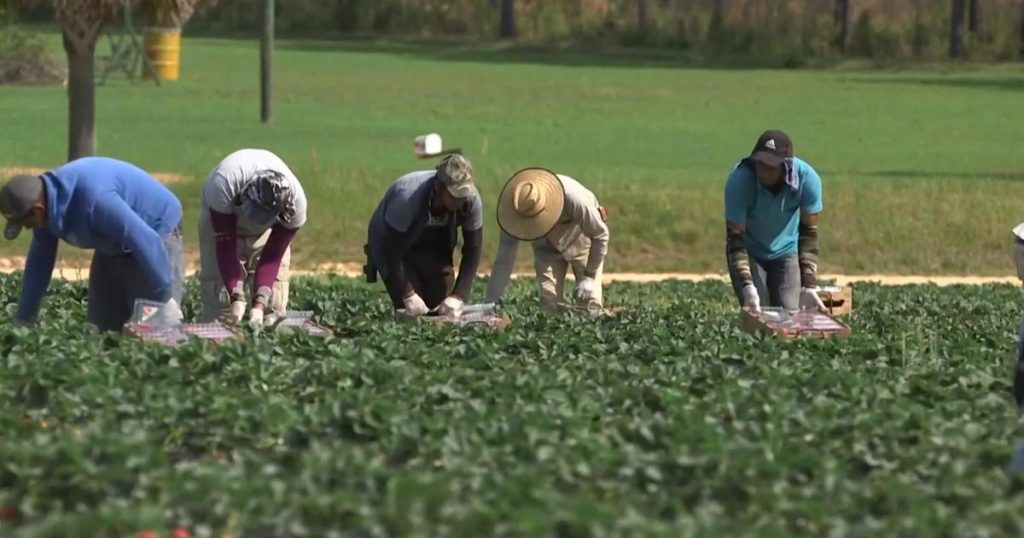In Clarksburg, California, U.S. Health and Human Services Secretary Xavier Becerra spoke about the Biden administration’s efforts to protect farmworkers from extreme heat and wildfire smoke, two emerging public health issues linked to the climate crisis. Becerra, whose father worked in the fields, highlighted the lack of protections for farmworkers and emphasized the need to prioritize their safety while they work to provide food for the nation. As one of the administration’s leading voices on climate change, Becerra has focused on marginalized workers who are most affected by extreme weather events.
Despite limitations in his jurisdiction, Becerra has released voluntary safety guidelines and educational materials to help farms protect their workers from heat and smoke. The Department of Labor oversees workplace protections, but Becerra is advocating for better conditions for farmworkers who are often exposed to dangerous weather conditions. Climate change is increasing the frequency and intensity of extreme heat, which is already a major cause of weather-related deaths in the U.S. Farmworkers are particularly vulnerable to these impacts and need additional support to ensure their safety.
While the U.S. Department of Labor has proposed a workplace heat standard that would provide breaks, shade, and water for workers in high temperatures, a final rule is still years away. Some states, including California, already have heat safety protections in place, but a federal standard would offer nationwide protections. Becerra hopes that states will take advantage of the programs offered by his department to improve workplace safety for farmworkers and other vulnerable workers. The increasing frequency of extreme weather events is a growing concern for farmworkers like Lizbeth Mastache, who experience health issues from working in extreme heat and smoke.
Farmworker advocates commend Becerra for raising awareness about the risks farmworkers face from heat and wildfire smoke but express concerns that federal funding may not reach the most vulnerable populations. There is a need to ensure that healthcare providers serving farmworkers receive adequate resources to address the health impacts of climate change on these communities. As Becerra shifts his focus to other issues, such as lowering prescription drug prices, the discussion around protecting farmworkers from extreme weather conditions remains critical for their safety and well-being. This article was produced by KFF Health News, a national newsroom focused on health issues and operates as part of the independent source for health policy research, polling, and journalism, KFF Health News.


